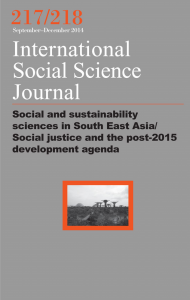Renegotiating the Gender Contract
by ChristinaBlunt
 According to a recent article in the New York Times, the single mothers of South Korea are beginning to mount a battle to reclaim not only their rights but also their identities. The social stigma surrounding unwed motherhood in South Korea is particularly fierce. According to the report, in 2007, 1.6 percent of babies were born out of wedlock and of those 1.6 percent 70 percent are given up for adoption. However, nearly 96 percent of the single women who are impregnated chose to have an abortion. The percentage of women who chose to either terminate the pregnancy or give their child up for adoption is startlingly high in comparison to United States figures where in the same year 40 percent of babies born were born into single parent homes and only 1 percent of these were given up for adoption. Yet these figures remain high in the face of South Korea’s declining birthrate as unwed mothers risk a life of “poverty and disgrace” in Korean culture. One observer explains, “Once you become an unwed mom, you’re branded as immoral and a failure. People treat you as if you had committed a crime. You fall to the bottom rung of society.” Women are often cut out of their families completely because of the shame it is supposed that they have brought on their house. Even the South Korean government’s recent attempts at social programs to help women are stymied by the fear of coming forward and subsequently facing eviction and job loss. In the face of such adversity, single mothers in South Korea are approaching their breaking point claiming, “Culture is not an excuse to abuse human rights.” A movement is growing in the region, spawning groups such as the “Korean Unwed Mothers Support Network,” and “Truth and Reconciliation for the Adoption Community of Korea.”
According to a recent article in the New York Times, the single mothers of South Korea are beginning to mount a battle to reclaim not only their rights but also their identities. The social stigma surrounding unwed motherhood in South Korea is particularly fierce. According to the report, in 2007, 1.6 percent of babies were born out of wedlock and of those 1.6 percent 70 percent are given up for adoption. However, nearly 96 percent of the single women who are impregnated chose to have an abortion. The percentage of women who chose to either terminate the pregnancy or give their child up for adoption is startlingly high in comparison to United States figures where in the same year 40 percent of babies born were born into single parent homes and only 1 percent of these were given up for adoption. Yet these figures remain high in the face of South Korea’s declining birthrate as unwed mothers risk a life of “poverty and disgrace” in Korean culture. One observer explains, “Once you become an unwed mom, you’re branded as immoral and a failure. People treat you as if you had committed a crime. You fall to the bottom rung of society.” Women are often cut out of their families completely because of the shame it is supposed that they have brought on their house. Even the South Korean government’s recent attempts at social programs to help women are stymied by the fear of coming forward and subsequently facing eviction and job loss. In the face of such adversity, single mothers in South Korea are approaching their breaking point claiming, “Culture is not an excuse to abuse human rights.” A movement is growing in the region, spawning groups such as the “Korean Unwed Mothers Support Network,” and “Truth and Reconciliation for the Adoption Community of Korea.”
It is helpful to view the challenges facing unwed mothers through the lens of the gender contract as does Amalia Sa’ar in the article, “Low-Income ‘Single Moms’ in Israel: Redefining the Gender Contract.” In this way the focus becomes less the overt denial of rights and more how a society is able to coerce women out of the right to raise their own children. Amalia Sa’ar explains that while in Israel one-parent motherhood is a much more ambivalent social identity, the fact remains that as a result of the normative gender contract in which the male is viewed as the “bread-winner” and the female the “caretaker,” women limit their ambitions to those compatible with family demands and accordingly have low expectations of employer, state and other support. Sa’ar found that, in terms of empowerment, for single mothers in Israel being embedded in kin networks is often more important than the presence of the father in the household. Historically, single motherhood as been examined as a the, “collapse of an imagined good or social order.” Particularly focusing on low-income unwed mothers, Sa’ar found the women were often accustomed to the instability of life and the necessity to become a “bread-winner” themselves prior to becoming single mothers and accordingly the aura of failed femininity emanates more from social class than marital status.
Despite the social and economic pressures of single motherhood Sa’ar argues that women still search for intimacy as part of their “normative feminine subjectivity” rather than for the support, which they, in Israel, are able to attain through kin networks. She attributes this quest for the ideal type relationship as a larger desire for a perceived middle class status. Sa’ar explains, “The process of adopting and crystallizing the social identity of ‘one-parent mothers’ entails a dialectic engagement, whereby low-income women retain but reformulate the gender contract as a dominant schema of their feminine subjectivity.” Empowerment through subjectivity becomes the delicate course single mothers attempt to chart and as deeply ingrained as the gender contract is it is also an increasingly versatile, open to cultural adaptation in which single motherhood becomes a symbolic motherhood. Single mothers, particularly those with low-incomes, are on the same journey in various parts of the world. They are attempting to reclaim their rights by reclaiming their gender identity and therefore their place in society. It may still be a long journey for the women in South Korea as they tackle the persistent nature of patriarchy but if a lesson is to be taken from Sa’ar’s it is to be unwavering in their confidence in their own legitimacy in society and recognition of their rights will follow.
![]() Read the article in the New York Times
Read the article in the New York Times
![]() Read “Low-Income ‘Single Moms’ in Isreal: Redefining the Gender Contract” by Amalia Sa’ar
Read “Low-Income ‘Single Moms’ in Isreal: Redefining the Gender Contract” by Amalia Sa’ar

















1099-1328/asset/dsa_logo.jpg?v=1&s=e4815e0ca3064f294ac2e8e6d95918f84e0888dd)

The social stigma in Korea is much stronger there than here, despite its similarities. We follow similar social constructs but not to the extreme measures.
I saw this post on the front page of wordpress and it caught my attention. I am the first to admit that I am not nearly as aware of issues like this in the world, but I appreciate people who take the time to think and write about them.
I also wanted to let you know I posted a link to here on another blog – the author is a social worker who studied extensively in women and gender studies and is now moving into other areas. I told her I thought she would be interested in this site. It is not my blog, but I thought I would connect you because after reading posts on both, I feel like it might be worthwhile and enjoyable for people with similar interests to share their knowledge.
Here’s her blog (the one I posted a link to here on):
http://fight4whatsright.wordpress.com
I enjoyed your article. The thing I would point out is that you come to a point where the male presence of the father is underplayed. It is unsaid but the “kin” relationships are an okay but not prime male role model replace. Without both sexes in the home the children have certain problems. What it means to be male for boys is primary seen to be displayed by the father figure.
One thing multi-culturalism has tried to tell us that each culture has their way of doing it and that is ok. But this article is saying that it is only okay if we give our stamp of approval. I think this is where western liberlism finds itself in a hypocritical situation. A culture is operating like it always has but the west doesn’t approve so it has to change. It is also ignoring the fact that this taboo creates a situation where 1.6 of births are to unwed mothers. Compare that to here where 40 percent of births are to unwed mothers. Abortion is promoted by liberalism as an option for women who want a sexually active lifestyle but when its used how could that be wrong?
There is a greater ideological conflict that is going on. On one hand you the thought that a woman can do anything with her body. The other is that the secular solutions for those repercussions are bad (ie abortion). The true issue really is that women shouldn’t have hardships in anyway they want to live. That is the ideology being pushed here.
Where is the trade off benifit for shifting the roles of men and women. In this case there is no incentive for men to negotiate. The woman has just as much right to say no to sex and parenthood as the man does. Does a society benifit from having a lot of unwed mothers? Historically society suffers from sexual misconduct of both parties. Enabling the institution of unwed parenting only leads to an increased societal burden. Social programs are a societal burden even if they are good programs. Add in the fact that the opportunities for the child are less just based on economics alone. The only thing that should be placed is shared dishonor where the woman outs the man she had sex with as she keeps the child. Then she is not the only one outcast and the male may think about marriage if he is not currently married.
Overall nice article and I enjoyed the read.
This is a problem not confined to South Korea alone, though conscious efforts elsewhere are not probably that organised. Maybe, South Korea may give the lead.
I appreciate you bringing this to our attention. I live in South Korea, and it’s amazing how little you hear about the subject here. I did however see a short documentary the other day, which makes me hopeful that minds are ready to start opening here.